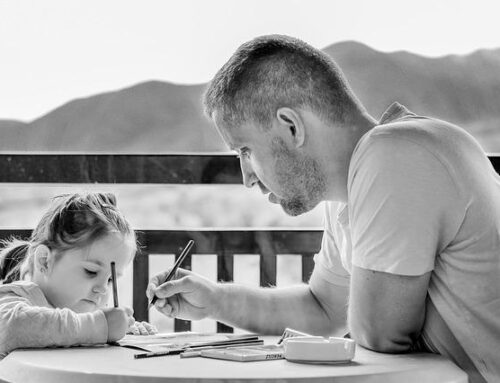What is trauma? Seriously, I’m asking. What is it for you? It is different for everyone who answers that question. Trauma is defined in the mind of the person who uses that word. In all honesty, that is a hard question to answer. So, let me approach it from a different angle. What are your frustrations within your current relationships? If you are currently in a romantic relationship, let’s look at that one specifically. If you are not currently in a romantic relationship, I want you to look back on your history of romantic relationships and isolate what your frustrations were at the time.
Frustrations are windows into our unmet needs. There is no such thing as a “small frustration.” Each one leads down a rabbit hole ultimately making way to a deeper meaning. Your partner keeps leaving their socks out? Your partner doesn’t put their dishes away? These deceptively “small frustrations” shed light onto areas of needs that you posses in your relationship. Begin to become aware of these frustrations in order to be able to find their deeper meanings. It is within these deeper meanings that you will uncover your unmet global desires in your relationship.
If this is unclear, let me ask you more directly. Do you feel seen or heard in your relationship? Do you feel validated? The answer to these questions is the ending of the proverbial rabbit hole; your global desire. In short, I am asking you to find the summation of your frustrations. What it is that you truly want, but don’t feel you are receiving in your relationship. This is where your past meets your present (also seen in blog: https://www.ctsatherapy.com/reflections-of-your-past/). Once your global desires are identified, you can then begin to communicate yourself more effectively. Circling back to the title of this blog, you will then begin to heal the trauma from childhood.
Let’s start from the beginning, within the unconscious mind. The unconscious mind can’t tell the difference between the past and the present. As far as it is concerned, the past IS the present. This is why we sometimes act childlike when we are triggered. I want you to remove your adult hat for a moment and put your child hat back on. What we define as trauma as children is different from what we define as trauma as an adult. As we get older, we rationalize our experiences from childhood. We use adult language and justifications. We tell ourselves the sentiments similar to; “Our parents did the best they could with what they had,” I was a difficult child, so I deserved the behavior I received,” or “My parents were stressed at the time, so they didn’t mean it.” We tell ourselves these things to minimize the trauma experienced as a child.
We are now going to make the unconscious process more conscious. Now direct your attention to your global desire. What did you most need but didn’t receive when you were a child? That same thing is what drives your frustrations in your current relationships. I am about to tell you something that is hard for all of us to hear. We are where we are because we have unconsciously sought out the exact circumstances to help us heal the pain and meet the needs that weren’t met from childhood. In the same breath, I want to also stress that this is an unconscious act, not one of deliberate compilation. If there is one thing that I want you to take away from reading this blog, it is exactly this sentiment.
The partner you are with, or the partners who you have chosen in your past, are the ones who you have unconsciously sought to help meet the needs that were not met when you were younger. Let me relate here to help reduce any feelings of isolation in this experience. I am human just like you. This concept is not an easy one to digest, so you are not alone in the potential struggle of accepting this idea. Remember, that while you have unconsciously found yourself attempting to heal from your past, so has your partner. They too have unmet needs that they are trying to have met through you as you are through them. This last part is admittedly a difficult pill to swallow, especially when you are being triggered by your partner’s behavior.
Everything I have talked about up until this point is very cerebral. It’s thought provoking and language heavy. However, it is really important to remember that our frustrations are first felt physically. That is why it is called a “feeling.” Our memories are stored physiologically, thus often experienced there before we begin to consciously think ourselves through the process. Our body is part of our unconscious. Remember, our unconscious thinks the past is the present, and it responds to your partner’s current behavior as if it is re-experiencing a past childhood memory. I cannot stress that statement enough. When you find yourself feeling frustrated by your partner’s behavior, your body is responding to an unmet need from childhood.
Now that you have an introduction into the process of how our current relationships provide the opportunities to heal past trauma, here are a few steps of what to do next:
- To make the unconscious more conscious, it would be helpful to begin to be more mindful of your thoughts and feelings. Find a meditative practice that works for you. Regularly practice breathing exercises to help regulate your emotions and physical sensations for when you find yourself triggered by your partner’s behavior. This will condition you in your experience to stay more in the present moment and not get caught up in the past. The more you condition yourself to bring yourself back to the present moment, the more you can stay present for your relationship and hold your partner in a more compassionate and productive space.
- Accept that your partner is the teacher who helps you identify your unmet needs. We need relationships to help point out the areas in ourselves that need compassion. This means that the frustration that you have for your partner’s behavior is your frustration to own. It would be unhelpful to blame our partners for our own unmet needs, especially if we haven’t communicated our needs adequately. Your partner’s behavior is just the catalyst. Own your feelings and disregard the intrinsic perceived need to believe that your partner is trying to check off items on their “Things To Do To Piss You Off” list.
- Create a list of frustrations in your relationship. For each frustration, write down what dialog you have in your mind about yourself and your relationship. Complete this sentence, “When they do this, what I tell myself about me/us is…”
- Find your global desire. In your same writing from the previous item, complete the sentence, “What I needed the most, but didn’t receive, as a child as…” This helps you find the deeper meanings of your frustrations. This is the deep unconscious unmet need that is creating the physical feeling of frustration in the present moment. This is what needs to be communicated.
- Develop a curiosity of your partner’s frustrations and frustrating behavior. As mentioned earlier, you and your partner are the same in this experience. Both of you have unmet needs, global desires, and feelings of frustration. Adopt curiosity as opposed to taking offense. When your partner is frustrated, ask them what they are feeling, thinking, and contemplate what their global desire might be. Their feelings are theirs to own, just like yours are yours to own. You don’t have to take responsibility for their feelings, so use that moment to not take their feelings personally, but to inquire about their pain.
- Be the best partner you can be. Instead of trying to change your partner, change yourself to be the best partner. If the both of you are working this same angle, the relationship is being set up for success. Negativity begets more negativity. Conversely, positivity begets more positivity. Shifting your mindset shifts your perceptions of your partner. How would you like your partner to show up for you when you are upset? Attempt to do that for your partner.
- Communicate while taking ownership of your emotion. Use “I” statements to own your experience without blaming and eliciting defenses in your partner. Be silent in your mind when listening to your partner. The word “LISTEN” and the word “SILENT” have the same letter, they are just in a different order.
- Providing a safe environment in the relationship allows the space and presence to heal trauma from childhood. Safety is key so that we can play out our childhood pain without judgment while in a supportive compassionate environment. This allows the unconscious mind to make safer associations in real time. When both partners are aware and participatory of this process, it will become a mutual and reciprocal experience, allowing both of you to have your needs met ultimately strengthening the relationship.
- Attend a couples workshop or talk to a therapist. The Center for Trauma, Stress, and Anxiety have therapists to work with couples and provide communication workshops.





Leave A Comment